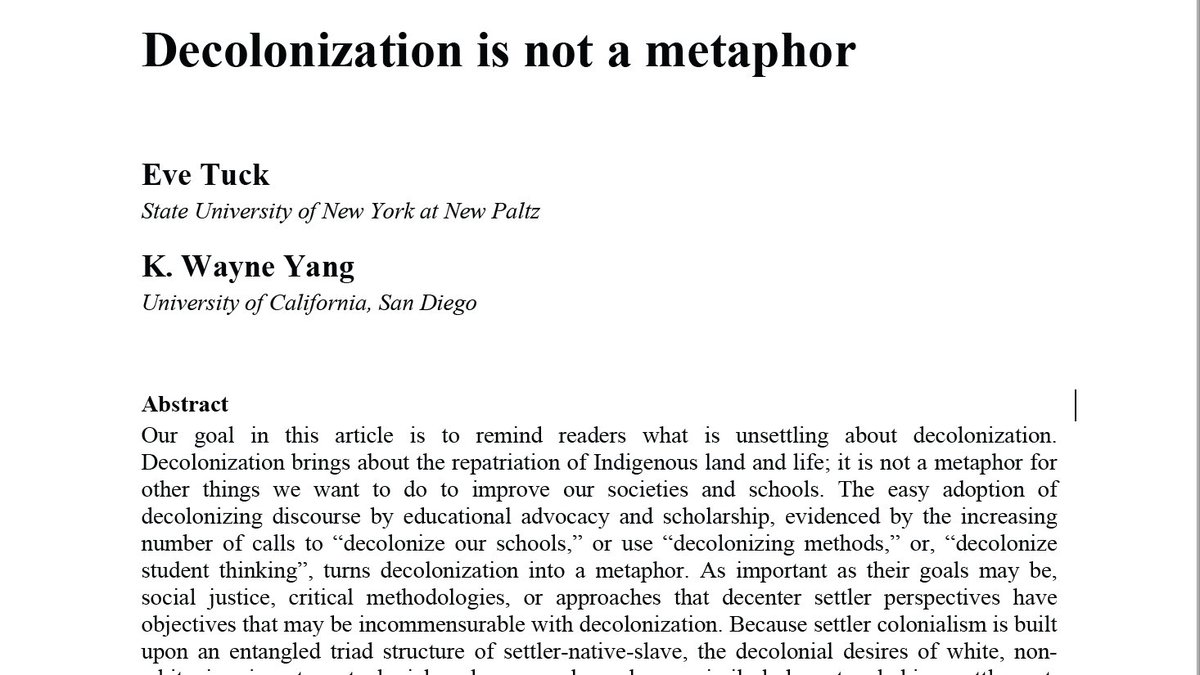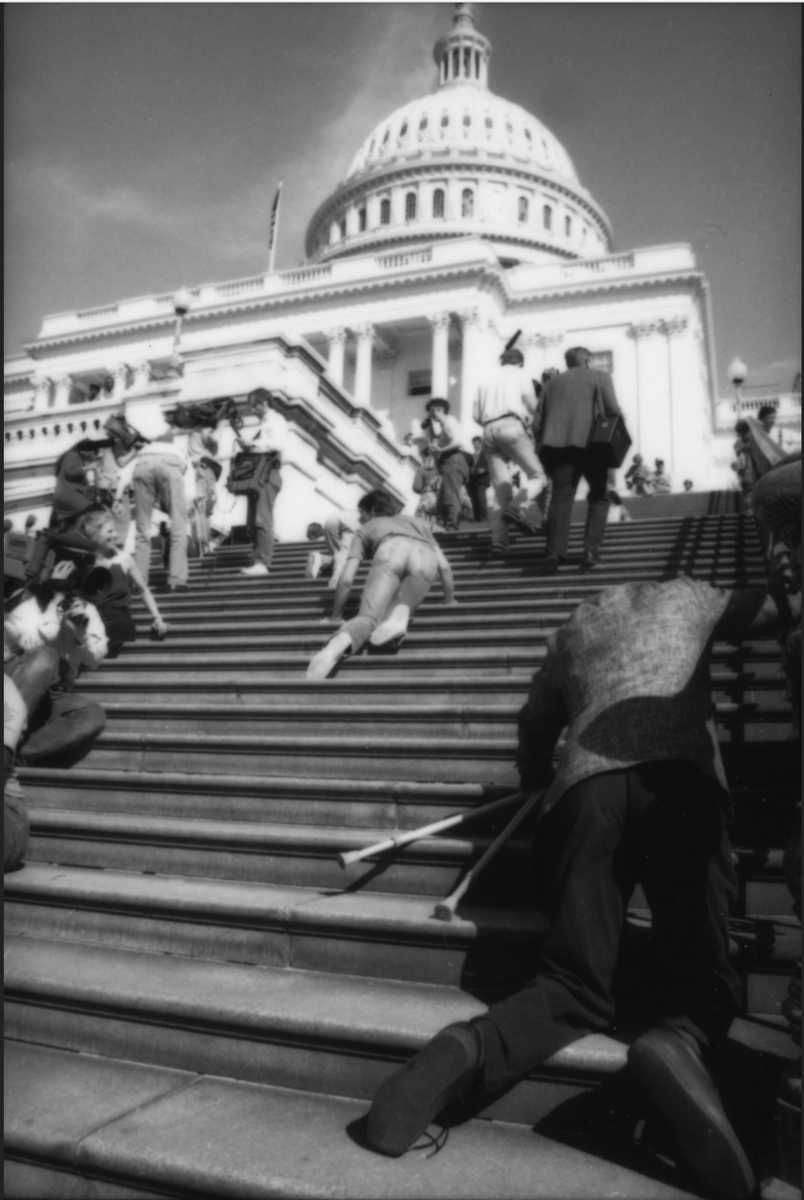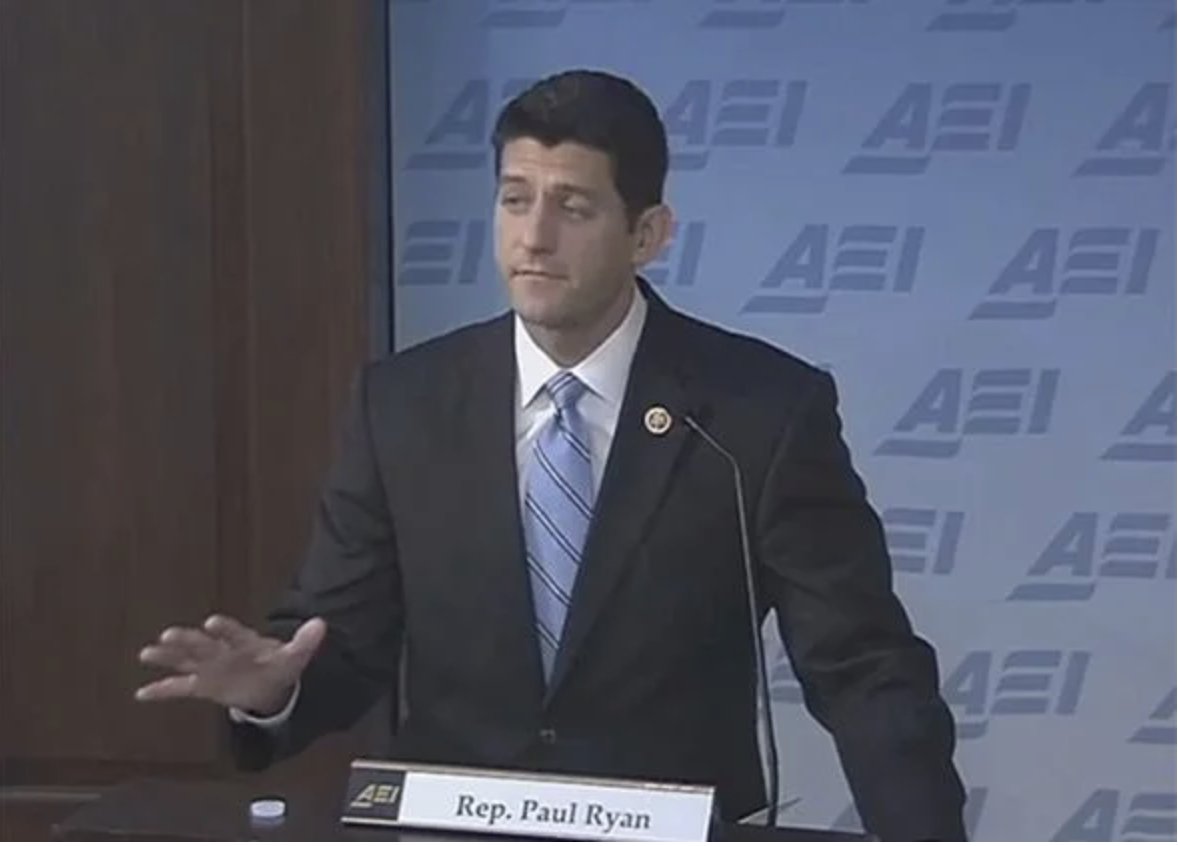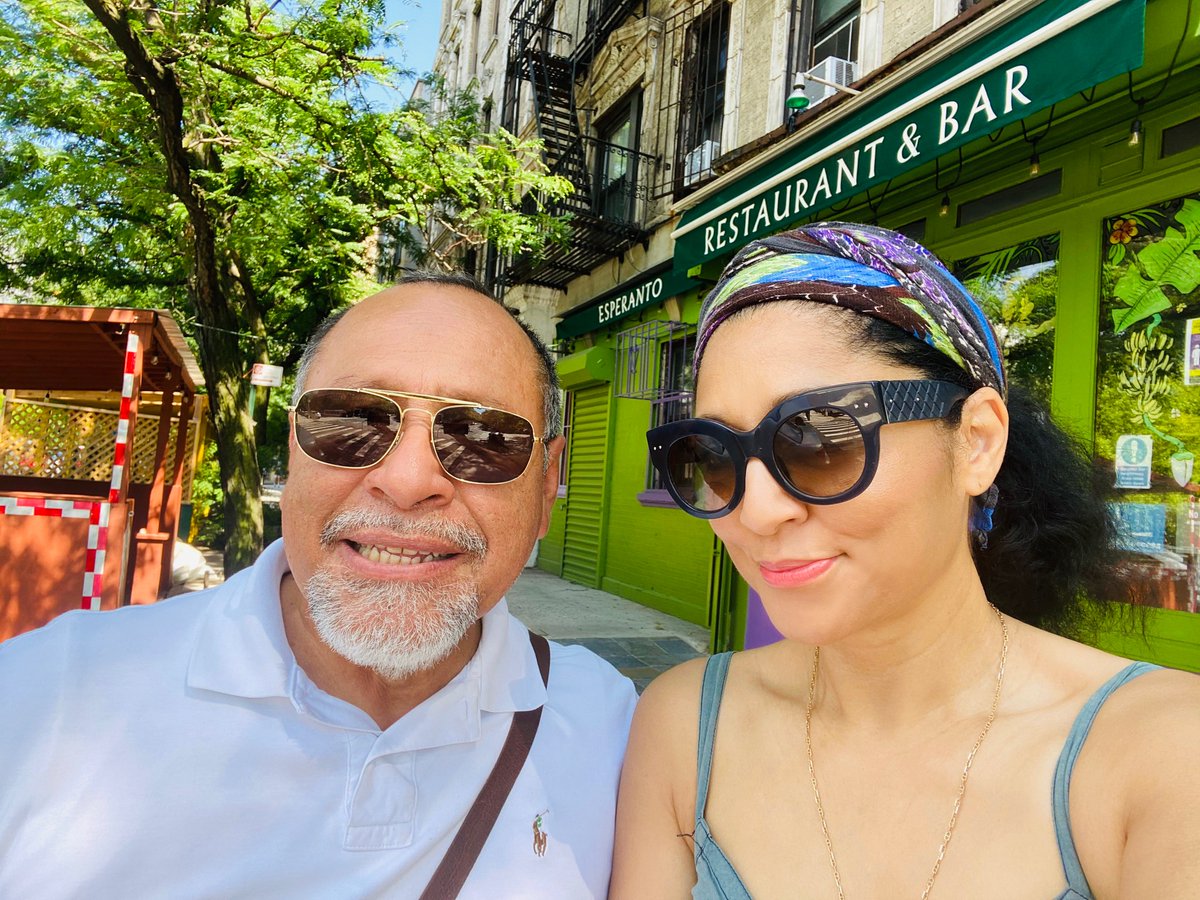
As #IndigenousPeoplesDay approaches I highly recommend reading, "Decolonization is not a metaphor" by Eve Tuck of State University of New York at New Paltz and K. Wayne Yang of University of California, San Diego. Linked here: google.com/url?sa=t&rct=j… 
https://twitter.com/PepePierce/status/1446322226509361152

1) A small excerpt: "When metaphor invades decolonization, it kills the very possibility of decolonization; it recenters whiteness, it resettles theory, it extends innocence to the settler, it entertains a settler future." #IndigenousPeoplesDay
2)"Decolonize (a verb) and decolonization (a noun) cannot easily be grafted onto pre-existing discourses/frameworks, even if they are critical, even if they are anti-racist, even if they are justice frameworks."
3) "The easy absorption, adoption, and
transposing of decolonization is yet another form of settler appropriation. When we write about
decolonization, we are not offering it as a metaphor; it is not an approximation of other
experiences of oppression."
transposing of decolonization is yet another form of settler appropriation. When we write about
decolonization, we are not offering it as a metaphor; it is not an approximation of other
experiences of oppression."
4) "Decolonization is not a swappable term for other things we want to do to improve our societies and schools. Decolonization doesn’t have a synonym."
Apologies the link above was broken, you can use this link below to download the PDF "Decolonization is not a metaphor" #IndigenousPeoplesDay jps.library.utoronto.ca/index.php/des/…
• • •
Missing some Tweet in this thread? You can try to
force a refresh















